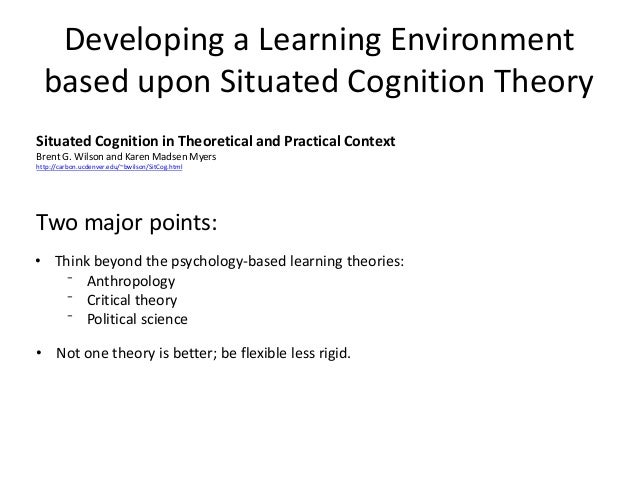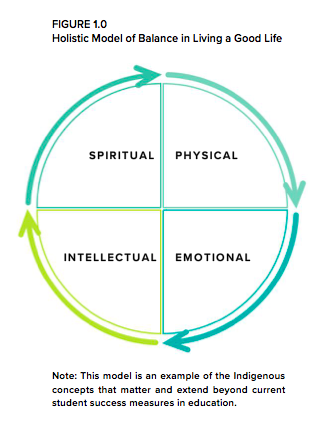Situated Cognition And The Culture Of Learning:
- Situated Cognition And The Culture Of Learning: America
- Brown Collins & Duguid
- Situated Cognition And The Culture Of Learning Brown
In an earlier paper (Collins, Brown and Newman, in press), cognitive apprenticeship was proposed as an alternative and richer view of learning than that suggested by didactic education. In this paper, we develop the concept of cognitive apprenticeship beyond that earlier exposition, exploring in particular its relationship to situated cognition and the social construction of knowledge. Download game clash of heroes. Using example from successful teaching methods, we discuss some of the central features of good learning environments, noting how these develop robust understanding through extensive use of students' intuitive knowledge and of the social and physical contexts of learning.
Situated cognition is a theory of instruction that suggests learning is naturally tied to authentic activity, context, and culture. It is more difficult to learn from unnatural activities. It is more difficult to learn from unnatural activities. Learning and cognition, it is now possible to argue, are fundamen tally situated. In this paper, we try to explain in a deliberately speculative way, why ac tivity and situations are integral to cognition and learning, an difd ho w ferent ideas of what is appropriate learning activity produce very different results. This article argues that this assumption inevitably limits the effectiveness of such practices. Drawing on recent research into cognition as it is manifest in everyday activity, the authors argue that knowledge is situated, being in part a product of the activity, context, and culture in which it is developed and used.
Situated Cognition And The Culture Of Learning: America

Brown Collins & Duguid

In conclusion, we indicate the need for more work on the epistemology of situated cognition, which underpins the theory of cognitive apprenticeship, and we indicate some of the potential benefits for education of continued research in this area. Keywords: Education; Teaching; Thinking; Learning. Read more.Rating:(not yet rated)Subjects.More like this.
Situated Cognition And The Culture Of Learning Brown
In an earlier paper (Collins, Brown and Newman, in press), cognitive apprenticeship was proposed as an alternative and richer view of learning than that suggested by didactic education. In this paper, we develop the concept of cognitive apprenticeship beyond that earlier exposition, exploring in particular its relationship to situated cognition and the social construction of knowledge. Using example from successful teaching methods, we discuss some of the central features of good learning environments, noting how these develop robust understanding through extensive use of students' intuitive knowledge and of the social and physical contexts of learning. In conclusion, we indicate the need for more work on the epistemology of situated cognition, which underpins the theory of cognitive apprenticeship, and we indicate some of the potential benefits for education of continued research in this area. Keywords: Education; Teaching; Thinking; Learning.